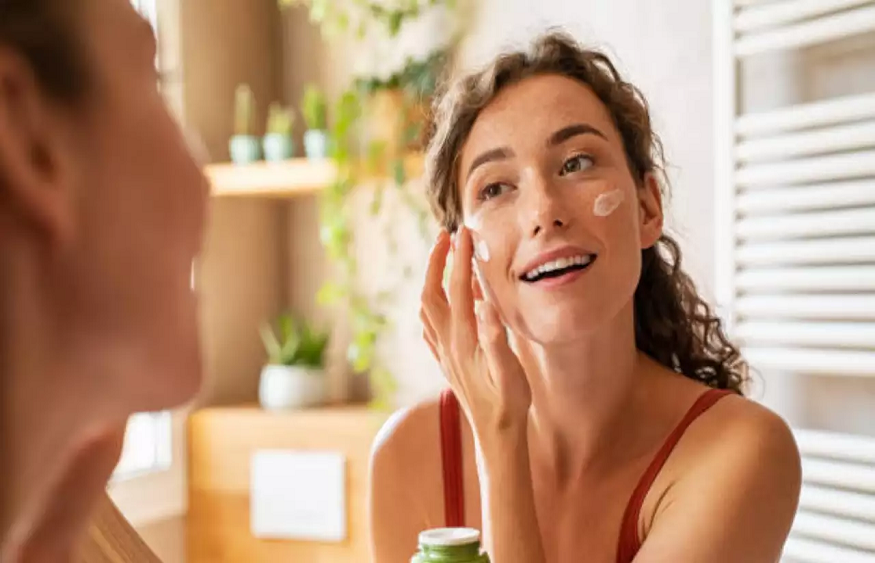If you pay attention to current trends in beauty and health, you know that skin care is undergoing a real revolution: you have access more than ever to a greater number of brands, products and tools to better ensure the health of your skin.
However, we shouldn’t put this trend down solely to vanity – taking care of your skin is more than just wanting to maintain your youthful appearance. As the skin is the body’s largest organ , it also plays a key role in regulating body temperature, producing vitamin D and providing first-line defense against harmful germs. It is therefore logical to want to take the greatest care of it.
However, it can happen that your best intentions work against you. So, by believing certain common skin care myths, you could yourself be causing (and even worsening) the skin problems you are trying to correct or prevent. Learn to separate fact from fiction by reading five common misconceptions about skin care and using the tips below to make smart skin choices.
Myth # 1 : There is only one good skin care regimen.
Most generic cleansers available at the grocery store or drugstore will remove dirt and oil from your skin, that’s true . Likewise, any moisturizer will provide your skin with some hydration. But to see truly positive results and make your skin look radiant, you need to provide it with exactly what it needs.
The first step in adopting a personalized skin care regimen is understanding your skin type. Are your skin pores small, with dry and rough patches? You probably have dry skin. If you are prone to blackheads and have to blot your face every afternoon, your skin belongs to the oily category. You have combination skin if the T region of your face (forehead, nose and chin) shines in the middle of the day, while your cheeks are dry. If your skin is easily irritated, you might have sensitive skin. If you’re still not sure which category you fall into, take the skin type quiz to find out .
Whatever your skin type, you must choose a skincare regimen that promotes the health of your skin barrier in order to feel good about yourself. The protective outer layer of the skin contains a lipid or moisture barrier that protects you from the harsh environment and retains natural moisture. When your skin barrier is in peak condition, your skin is firm and plump and your complexion glows with freshness. It’s important to ensure the health of your moisture barrier to get the results you want to see in the mirror.
A personalized skin care regimen can be as simple as the two-step method of cleansing and moisturizing or as complex as the Korean 13-step routine. Regardless of how many steps you choose, make sure each product in your regimen is suitable for your skin type. As a general rule of thumb, the following common foundation products are included in a skin care regimen:
Cleanser: Choose a gentle cleanser for morning and evening. If you’re putting on makeup, it’s best to remove it in a separate step before washing your face – this is the two-step cleansing process.
Conditioner: More than just an important step for combination or oily skin, applying conditioner can also help hydrate dry skin. This product category has seen tremendous growth in recent years, and you can find conditioners with a wide variety of ingredients, from rosewater to kombucha. Applying a conditioner right after cleansing helps lock in natural moisture and prepares the skin for its hydrating treatment, but this is an optional step.
Serum: Available in more or less concentrated versions, serums can contain a wide range of ingredients – including plant extracts, moisturizers are also tailor-made according to the needs of your skin. For the morning, choose a moisturizer with a broad-spectrum SPF of at least 30 or use sunscreen after applying moisturizer.
Myth # 2 : You only need facial skin care products.
Remember the skin barrier we discussed earlier? It covers and protects the skin all over the body. In other words, the rest of y
Myth # 3: The higher the SPF, the better the protection.
At first glance, the logic should be simple: the higher the SPF of a sunscreen, the better its protection against the sun’s harmful rays .
Although both UVA and UVB rays can damage the skin, as a general rule, SPF only measures how well a product protects your skin hasn’t been exposed to a high dose of dangerous UVA rays.
So what is the right balance? Choose an SPF between 30 and 50 that protects against UVA and UVB rays. The label will often say “broad spectrum” or “multi-spectrum” or “UVA/UVB spectrum.”
For optimal sun protection, apply more sunscreen than you think you need and remember to reapply if you are out in the sun for more than two hours or have spent any time in the sun. water or training. Also take other steps to avoid the sun, such as staying in the shade, wearing loose, light-colored clothing and a hat, and limiting the time spent in direct sunlight.
Myth # 4 : Restful sleep only exists in fairy tales.
Sleeping until noon on Saturday won’t erase crow’s feet or expression lines. But according to a growing body of research, getting a good night’s sleep regularly will do wonders for your skin in the long run. Conversely, repeated poor nights of sleep can have extremely harmful effects on the skin.
A study of British women reported rather conclusive results. All of these women noticed an increase in the number of wrinkles and dark circles and a dull complexion after five consecutive days with just six hours of sleep per night – compared to eight hours of sleep.
The immediate effects of a poor night’s sleep may be dark circles under puffy eyes, but the detrimental effects that sleep deprivation ca

